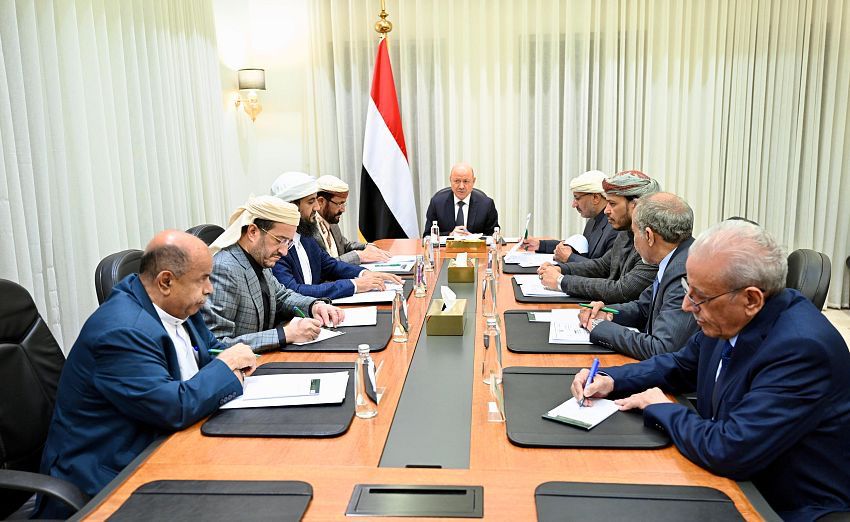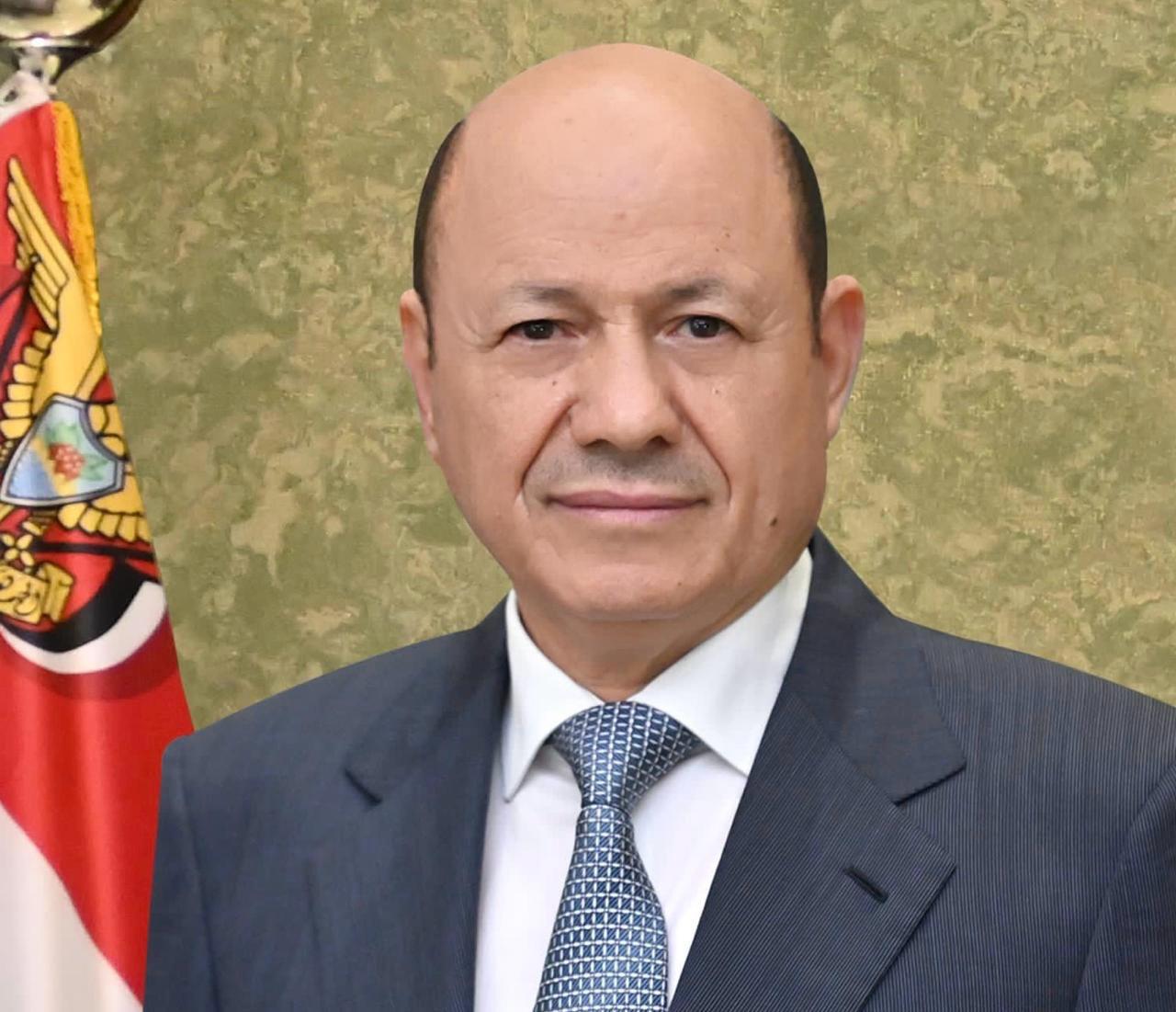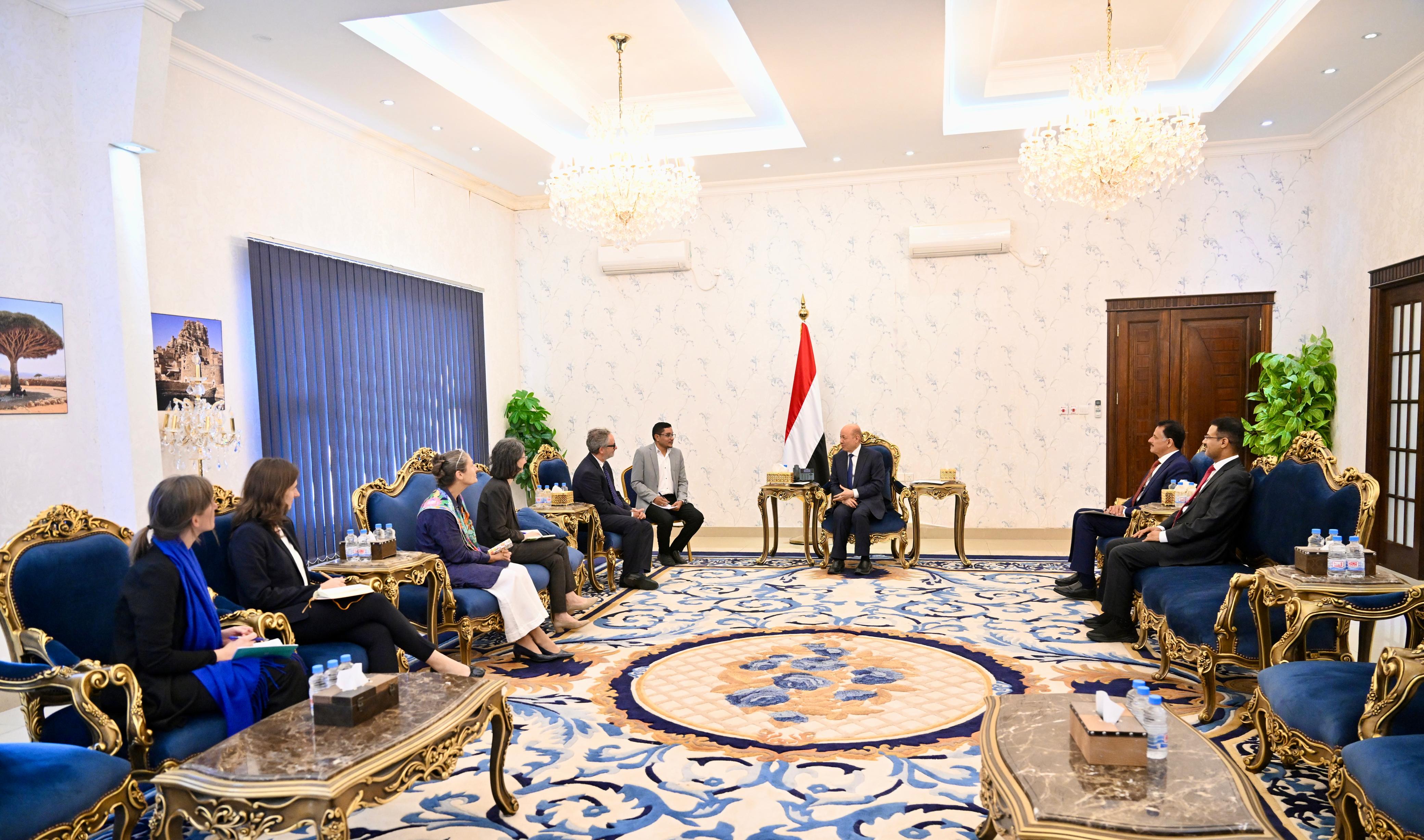
President Al-Alimi Urges International Community to Match Houthi Threat with Appropriate Measures
Aden
His Excellency Dr. Rashad Mohammed Al-Alimi, President of the Presidential Leadership Council, received today (Tuesday) at Al-Ma’ashiq Palace in the interim capital, Aden, Mr. Gabriel Munuera Viñals, the Head of the European Union Mission to Yemen, along with the Ambassadors of France and the Netherlands, and the Chargé d’Affaires of the German Embassy.
President Al-Alimi welcomed the European diplomats, who reaffirmed the European Union’s strong commitment to supporting the Yemeni people and their aspirations to restore state institutions and end the coup by the Iran-aligned Houthi militia.
During the meeting, the President briefed the European ambassadors on the overall developments in the country, calling for increased European support to help stabilize Yemen’s economy and alleviate the humanitarian suffering caused by Houthi terrorist attacks targeting oil facilities and shipping vessels.
He emphasized that the Yemeni state is not only fighting a military war but also waging an economic battle to save millions of Yemenis who have lost their means of dignified living.
President Al-Alimi noted that since oil exports were halted due to Houthi attacks on export terminals, Yemen has lost about 70% of its public revenue. The government is now working to compensate for this through sustainable domestic resources.
He praised the honorable positions of the Arab Coalition led by Saudi Arabia and the United Arab Emirates, which have stood by the Yemeni people and their leadership—helping to mitigate the impact of the financial crisis through ongoing economic, service, and humanitarian interventions that have bolstered resilience on multiple fronts.
In contrast, he said, the Houthi militia and its backers continue their systematic economic warfare against the Yemeni people, including attempts to destroy any prospects for financial unity by minting new currencies outside the Central Bank’s authority—an open challenge to efforts aimed at improving living conditions in the country.
President Al-Alimi stressed that these terrorist Houthi actions are not random but rather a deliberate effort to eliminate livelihoods and systematically destroy the nation’s economy, food security, and national stability.
He also discussed ongoing financial, administrative, and institutional reforms led by the government in its efforts to restore economic recovery, despite immense pressure and complex challenges.
“Every step taken by the government from within is a battle against corruption and against surrendering the state to the forces of evil and their sponsors,” the President said.
He warned that “Yemen is not just facing a domestic rebellion but a cross-border threat from an armed group that detains UN aid workers, runs assassination cells in liberated areas, and operates networks for smuggling money and drugs.”
President Al-Alimi revealed that security services recently uncovered one of the most dangerous such cells, responsible for assassinating a World Food Programme employee in Taiz Governorate, along with several leaders, activists, journalists, and innocent civilians. He said the group even attempted to assassinate the UN envoy in a bid to sow chaos in liberated areas and undermine international confidence in the government’s ability to secure its territory.
He also highlighted Houthi terrorist attacks that threaten regional and international security, including global maritime navigation—the latest being the sinking of commercial ships and the killing of innocent sailors from various nationalities. He described this as one of the most dangerous threats to international maritime security since World War II.
While commending the European Union and the international community’s supportive stance toward the Yemeni people, President Al-Alimi noted that the current response is not appropriate with the escalating threat, which risks further loss and prolonged suffering.
He urged European partners to take urgent decisions to designate the Houthi militia as a terrorist organization and to implement practical measures to isolate it as an armed group operating outside the bounds of law and international legitimacy. The President reiterated the Yemeni government’s commitment to a peaceful path based on nationally, regionally, and internationally agreed-upon references, and to supporting the efforts of the UN envoy and facilitating humanitarian organizations’ access to deliver aid to those in need across the country.
The meeting was attended by Major General Saleh Al-Maqaleh, Director of the Presidential Office, and Ms. Claire Nantier, Political Advisor to the European Union.
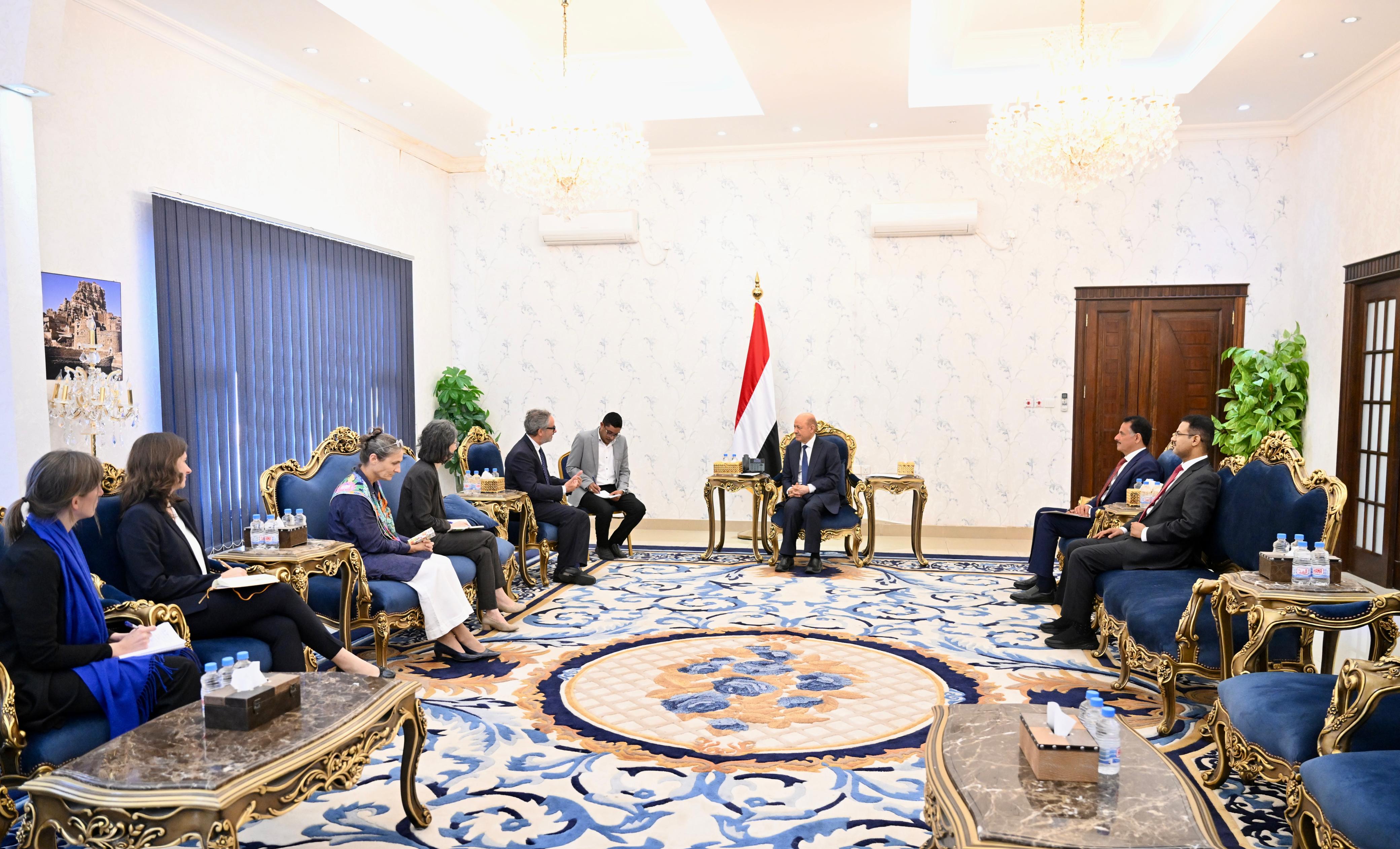
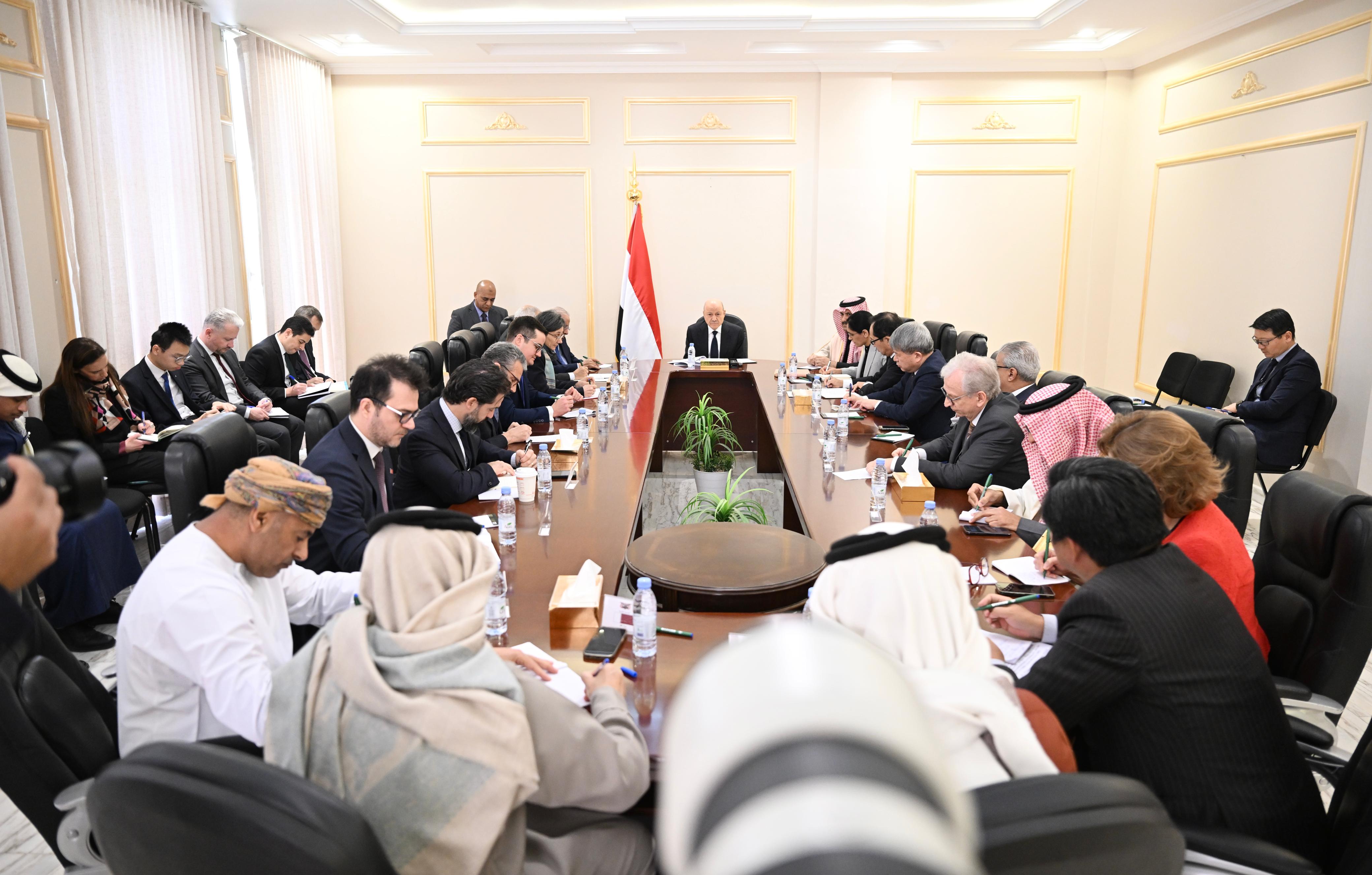
President Al-Alimi: Developments on Ground Are Promising and Refute Claims of a Vacuum and Worst-Case Scenarios
His Excellency President Dr. Rashad Mohammed Al-Alimi, President of the Presidential Leadership Council, said that state institutions are making tangible progress in unifying security and military decision-making

